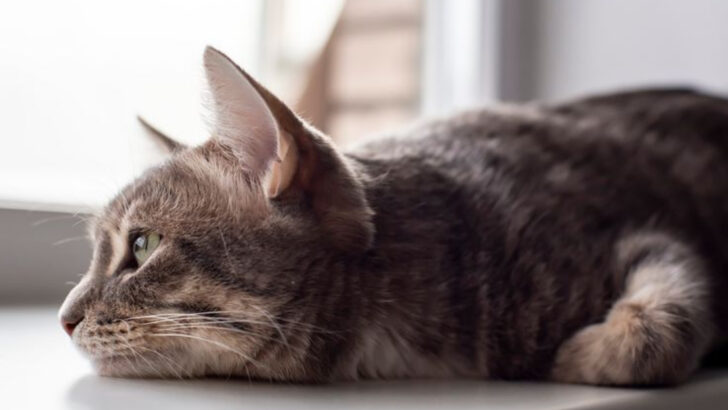Cats grieve—harder than most people expect.
When a feline loses a companion, whether human or animal, the change can hit like a silent storm. One moment they’re curled beside their friend. The next, they’re wandering the house, meowing into empty rooms.
Grief in cats isn’t loud. It’s subtle. A skipped meal here. An ignored toy there. But behind those quiet habits is a heart trying to understand a world that no longer feels right.
If you’ve ever seen your cat staring at a favorite window with that heavy, hollow look—you’re not imagining it. Feline grief is real. And it deserves care, not confusion. Let’s talk about what cat owners wish they’d known before the heartbreak—and the ways you can truly help your furry friend heal.
Cats Sense Loss Deeply
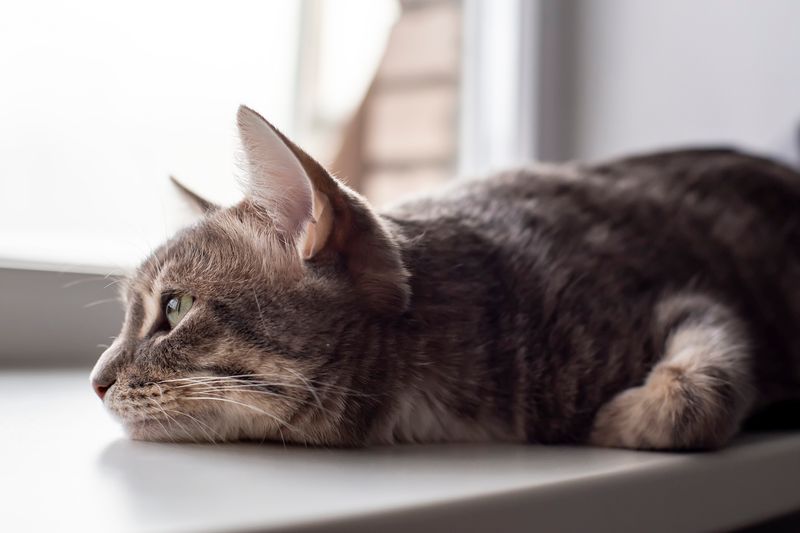
Cats exhibit a profound sense of loss. You might notice your feline friend gazing out the window, pondering an absent companion or a change in routine. This quiet reflection showcases their emotional depth. Cats often remember lost friends, both feline and human, spending time in places they once shared.
Their sensitivity to loss is a testament to their intricate emotional lives. As they mourn, they may become quieter, seeking solitude or comfort in familiar spots. Their perception of absence is as real as ours, reminding us of the rich emotional tapestry that defines feline existence.
Behavioral Changes Are Normal
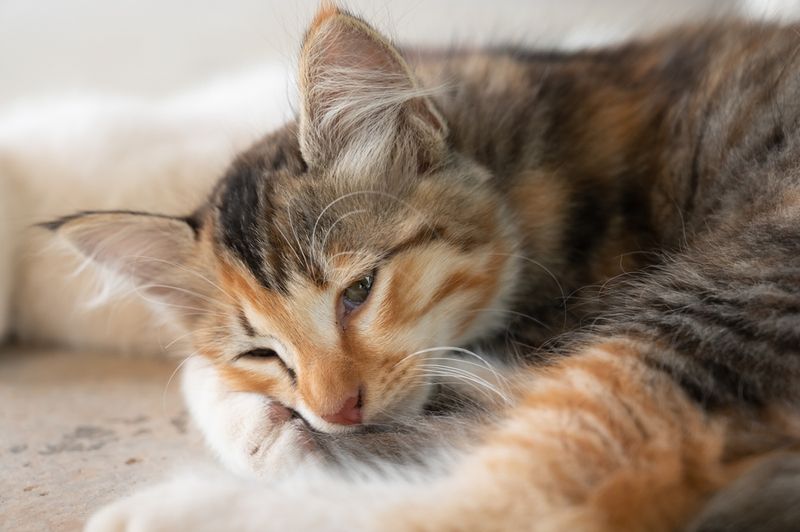
When cats grieve, their behaviors can shift dramatically. Some may hide under beds, seeking solace in solitude, while others become unusually clingy. These changes reflect their internal struggle.
Grieving cats might also show altered eating habits, either losing their appetite or indulging excessively. Their grooming routines could shift, indicating stress or depression.
Understanding these behavioral shifts is crucial for supporting your cat through grief. By recognizing and adapting to these changes, you can offer them the comfort and stability they need during this challenging time.
Cats May Vocalize More
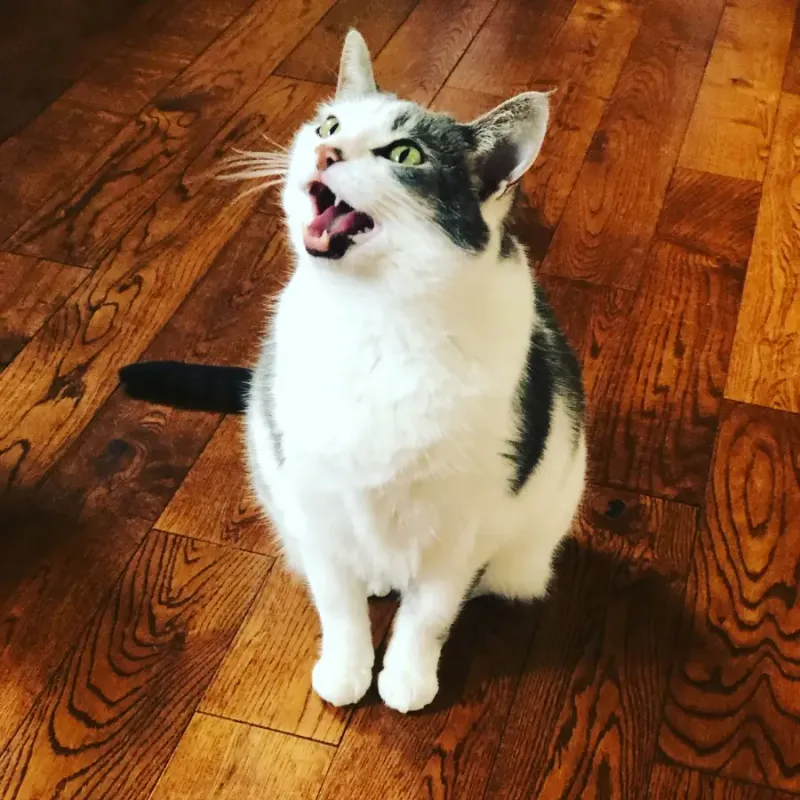
Grieving cats often become more vocal, expressing their feelings through increased meowing or other vocalizations. These sounds may carry a tone of melancholy or longing, echoing their emotional state.
This vocal expression is their way of communicating discomfort or seeking reassurance from their human companions. Understanding this need for connection can foster a deeper bond.
By responding gently to their calls, you can provide the comfort they seek, acknowledging their grief and offering the support they need to navigate this emotional terrain.
Loss of Appetite
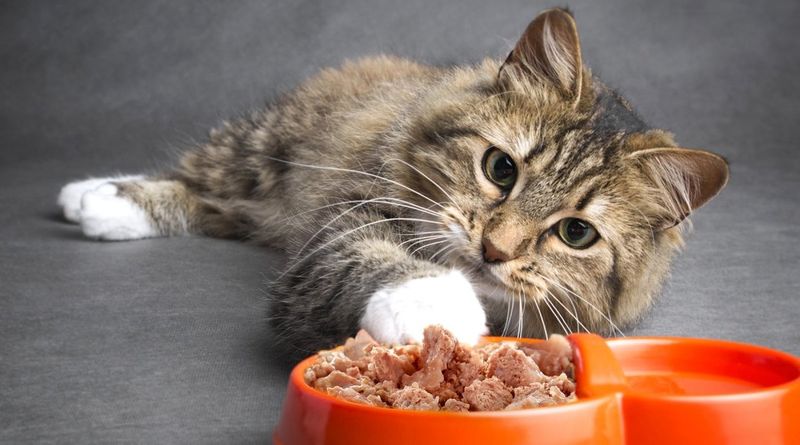
A common sign of feline grief is a loss of appetite. Your cat may sit beside a full bowl of food, looking disinterested, its usual enthusiasm dampened by sadness. This shift in eating habits can be concerning, reflecting the emotional turmoil within.
It’s essential for cat owners to monitor these changes closely, ensuring their pet’s health remains a priority. Encouraging them with favorite treats or adjusting their diet might help rekindle their interest in food.
Understanding and patience are key to helping them through this difficult period.
Changes in Grooming Habits
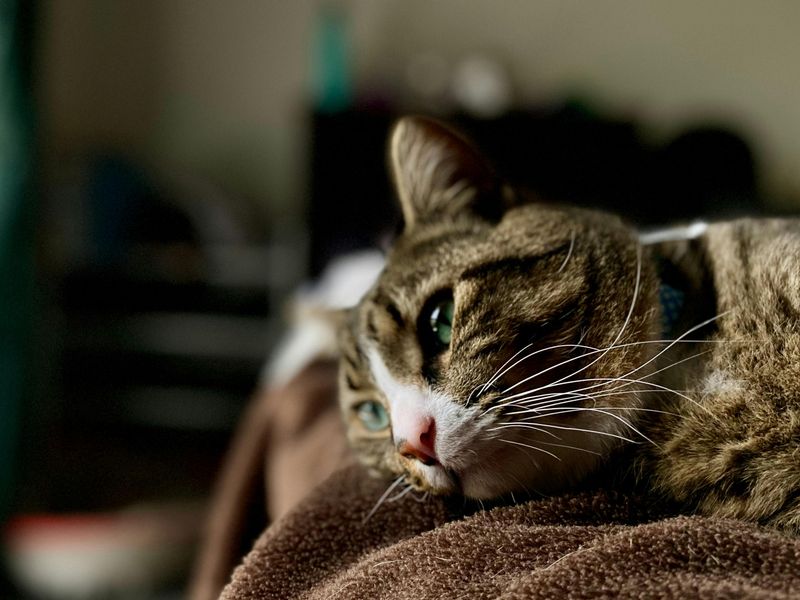
Feline grief can manifest in changes to grooming habits. You might find your usually pristine cat with disheveled fur or engaging in excessive grooming. These behaviors reflect their emotional distress.
Cats groom to soothe themselves, so increased grooming may indicate an attempt to cope with grief. Conversely, neglecting grooming can signal depression.
By gently attending to their grooming needs, you can provide physical comfort and emotional support. This attention helps them regain a sense of normalcy and aids in their emotional recovery.
Increased Sleep
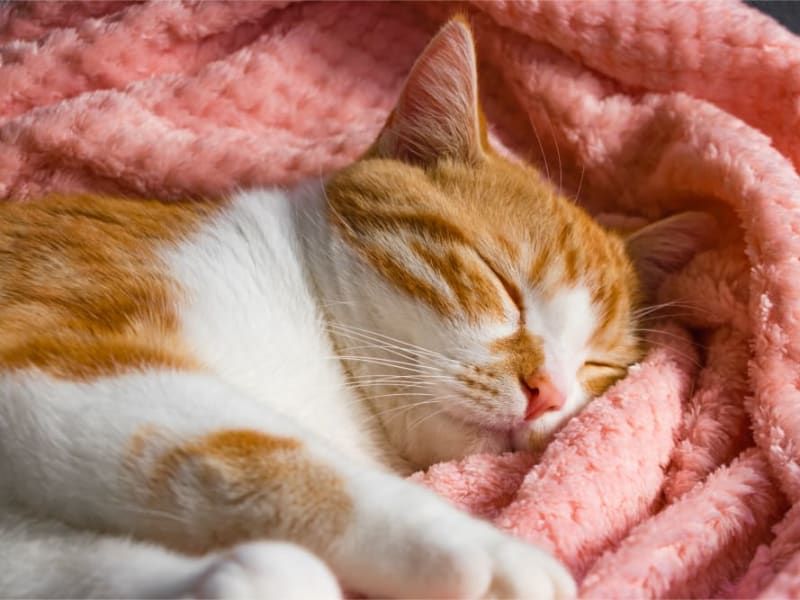
Grieving cats often retreat to prolonged slumber, seeking solace in the comfort of sleep. You may notice your cat nestled in a sunlit corner, snoozing more than usual.
This increase in sleep can signify a coping mechanism, allowing them to escape from their grief-stricken reality. While this behavior is normal, it’s important to ensure they maintain enough activity to stay healthy.
Encouraging gentle play and interaction can gradually help them re-engage with their environment, offering a path back to emotional balance.
Isolation Can Be Common
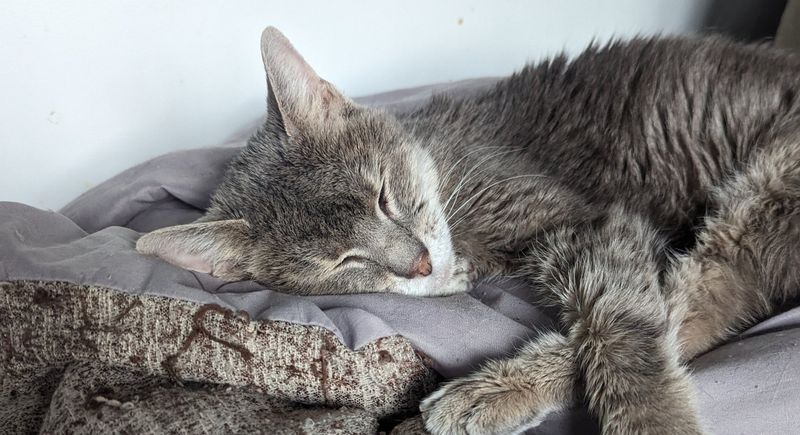
Isolation is a common response to grief in cats. You might find your feline companion choosing solitary spots, away from their usual social areas. This behavior reflects their need to process loss in a quiet environment.
While respecting their need for solitude, gentle encouragement to interact can be beneficial. Offering quiet companionship or engaging in soft activities can gradually draw them back to social engagement.
Understanding their need for space, yet providing gentle support, balances their requirements for healing.
Clinginess Might Increase
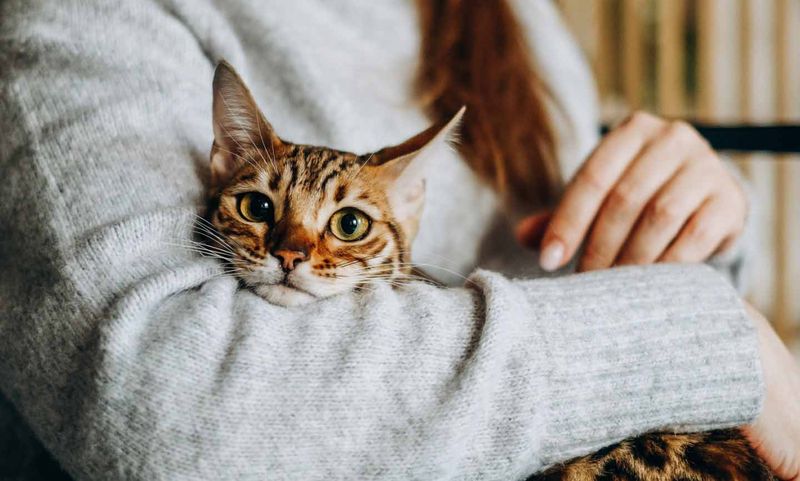
Some grieving cats become more clingy, craving the closeness and reassurance of their human companions. You might find your cat nestled in your arms more often, seeking comfort and stability.
This increased need for closeness is a way for them to feel secure amidst emotional turmoil. Embracing their need for extra attention can help them feel loved and supported.
By providing this affection, you reinforce their trust and offer a comforting presence as they navigate their grief journey.
Playfulness Declines
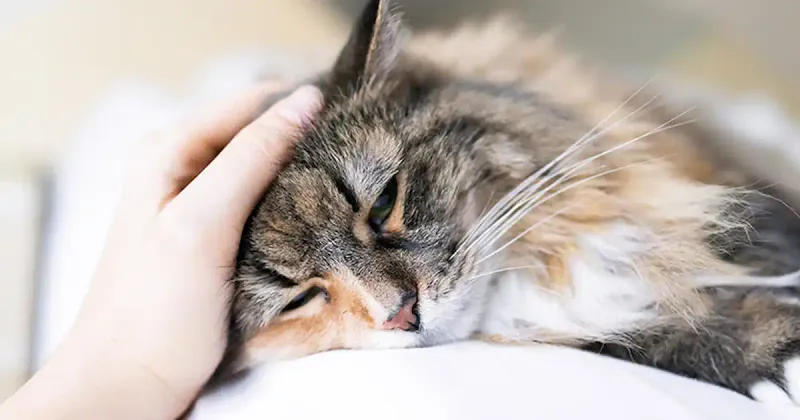
Grieving can lead to a noticeable decline in a cat’s playfulness. You may observe their toys lying untouched, while they lounge nearby, disinterested. This lack of play reflects their altered emotional state.
Reigniting their interest in play requires patience and creativity. Gentle encouragement and introducing new, engaging toys might gradually rekindle their playful spirit.
Understanding that their playful nature will return in time helps maintain a supportive environment. Encouragement and love are essential in helping them rediscover joy.
Changes in Litter Box Habits
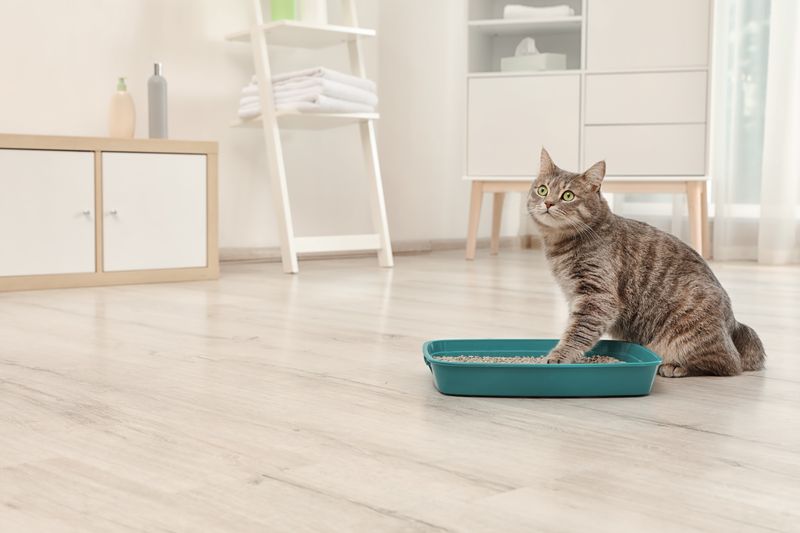
Feline grief can disrupt normal litter box habits. You may notice your cat avoiding or seeming hesitant to use their box, signaling stress or anxiety. This change in behavior indicates their emotional upheaval.
Monitoring these habits and ensuring the litter box remains clean and accessible are crucial steps in supporting them. Addressing any discomfort can help ease their anxiety.
Patience and understanding guide them back to healthier routines. This simple act of care provides the reassurance they need during difficult times.
Understanding Feline Grief
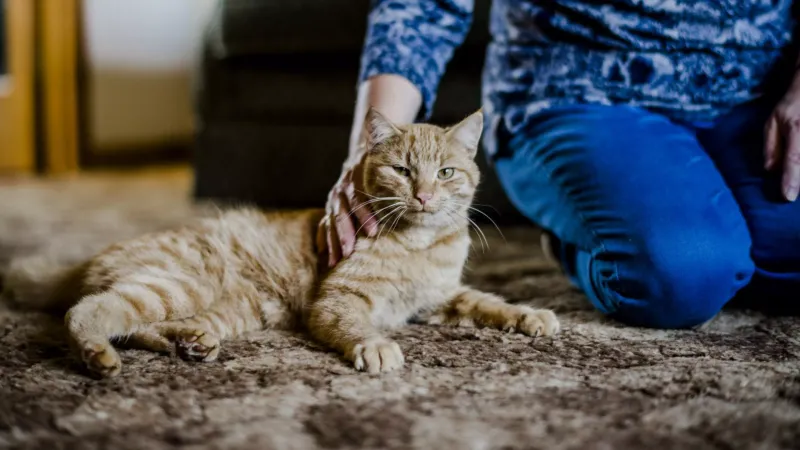
Recognizing and understanding feline grief is crucial for cat owners. Sharing a quiet, comforting moment with your cat underscores the depth of their emotional world. This understanding fosters a stronger connection.
Acknowledging their grief as legitimate aids in providing the support they need. Through empathy, you can help them navigate emotional challenges.
Your presence and patience serve as a beacon of comfort, helping them through the shadows of grief. Understanding their feelings enriches the bond you share, reinforcing trust and love.
Offering Comfort Through Routine
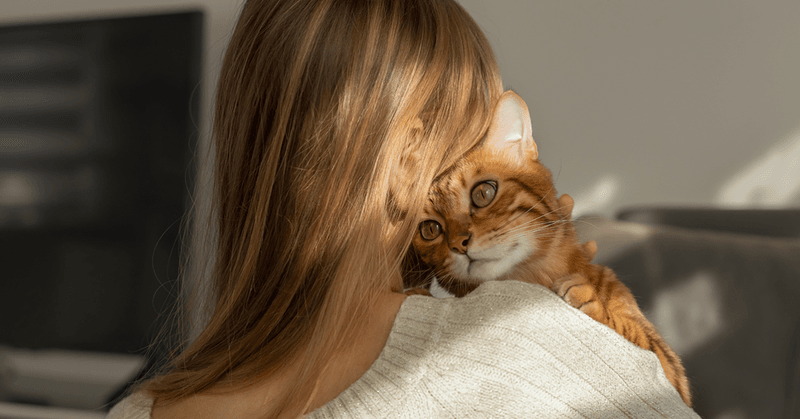
Offering comfort through routine can be soothing for a grieving cat. Engaging in familiar activities, like gentle brushing sessions, provides a sense of normalcy and reassurance.
These shared moments reinforce stability and connection, helping your feline friend feel secure. Consistent routines act as anchors, guiding them through turbulent emotional waters.
By maintaining these comforting rituals, you offer a gentle pathway for recovery. Your consistent presence and care ease their journey back to emotional equilibrium.
Providing a Safe Space
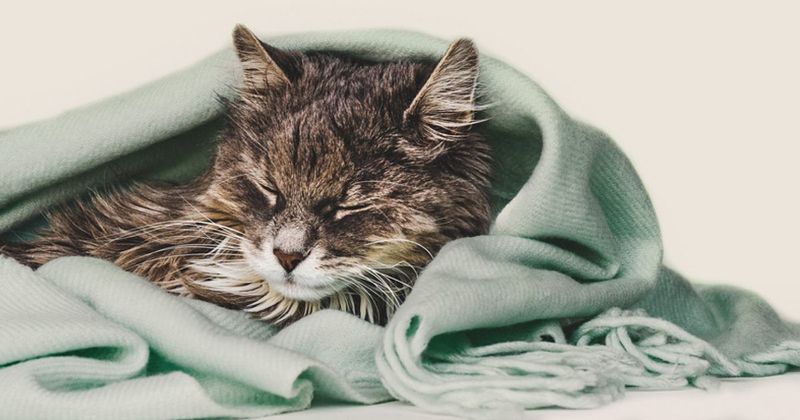
Creating a safe and comforting space is vital for a grieving cat. A cozy corner with soft blankets and familiar scents offers a haven where they can retreat and process their feelings.
This sanctuary provides a sense of security and stability, aiding their emotional recovery. Ensuring this space is quiet and accessible encourages their use.
By offering this refuge, you demonstrate understanding and compassion, supporting their healing journey. Such thoughtful gestures reinforce the trust and bond you share.
Gentle Encouragement for Interaction
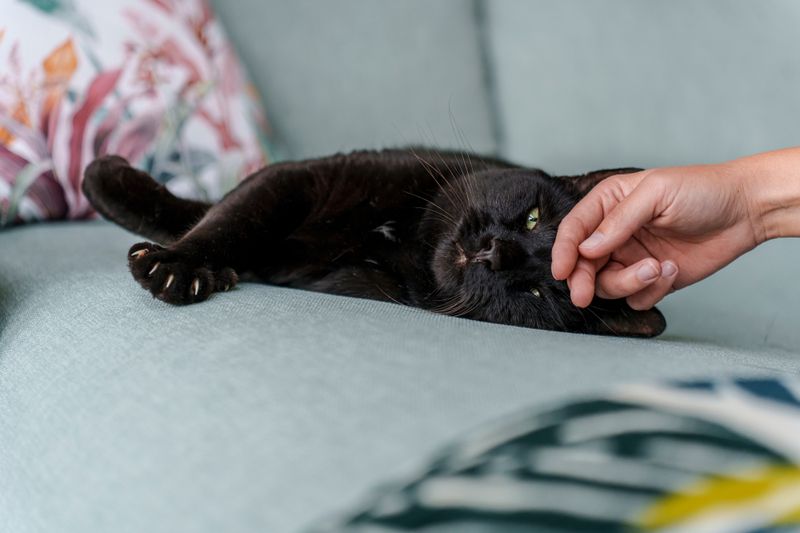
Gentle encouragement for interaction can help a grieving cat rediscover joy. Introducing new toys or activities might spark cautious interest, slowly drawing them out of their shell.
This process requires patience and sensitivity, respecting their pace and comfort level. By offering enticing opportunities, you encourage them to re-engage with their surroundings.
Celebrating small victories in interaction strengthens their confidence and fosters connection. Your gentle guidance supports their journey back to emotional well-being.
Balancing Solitude with Presence
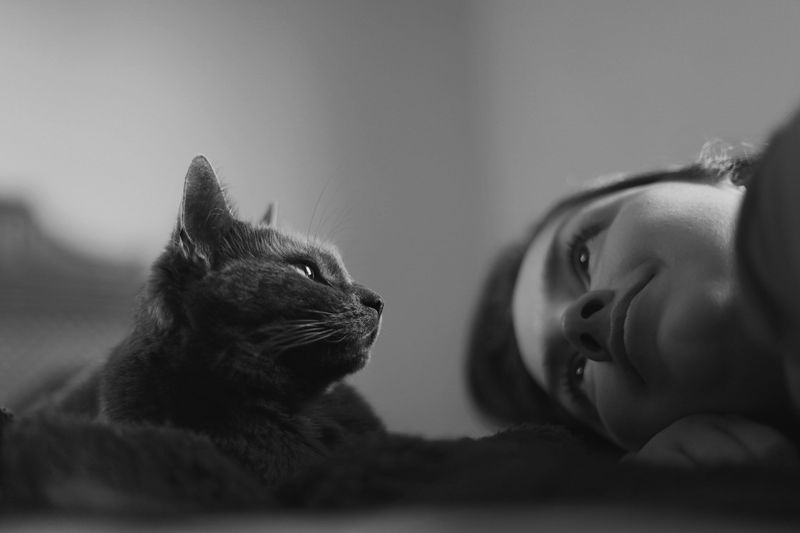
Balancing solitude with presence is key in supporting a grieving cat. Sharing moments of silent companionship, where your cat sits quietly beside you, honors their need for both space and closeness.
This balance allows them to process emotions while feeling supported. By respecting their need for solitude yet offering companionship, you provide a comforting presence.
These quiet connections reinforce trust and understanding, aiding their emotional recovery. Your mindful support nurtures their healing process.
Recognizing the Need for Professional Help
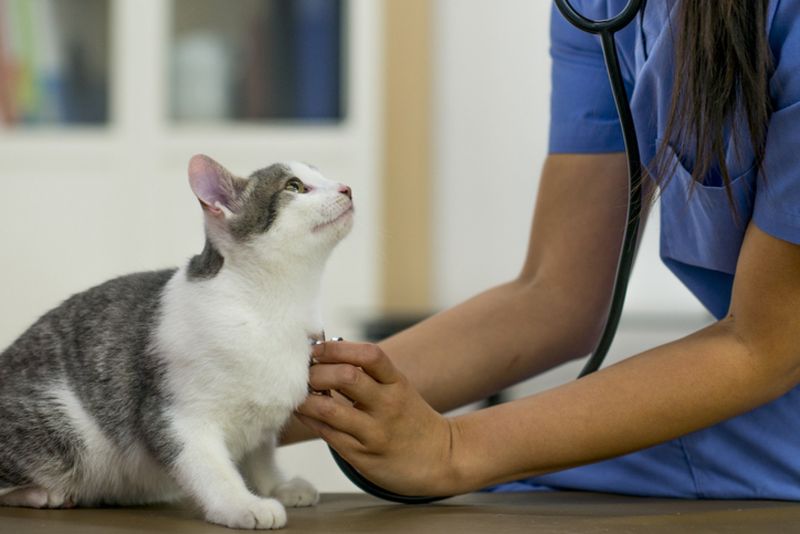
Sometimes, professional help is necessary to support a grieving cat. Consulting a veterinarian when signs of grief persist ensures your cat receives the care they need.
A veterinarian can provide insights and potential treatments to alleviate prolonged emotional distress. Recognizing when professional intervention is required is an important aspect of responsible pet ownership.
This proactive approach demonstrates your commitment to their well-being, ensuring they find their way back to happiness and health. Your diligence and care pave the way for recovery.
Emotional Support for Cats
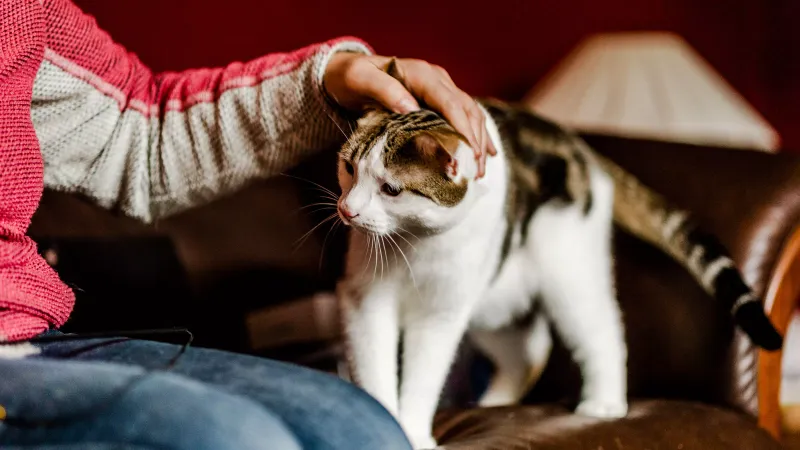
Offering emotional support to a grieving cat involves more than physical care. Speaking softly and offering gentle words of comfort and understanding can significantly impact their emotional well-being.
These verbal reassurances strengthen the bond and provide a sense of safety. Recognizing the power of your presence and voice helps them feel less alone in their grief.
Your empathetic communication fosters a nurturing environment, aiding in their emotional recovery. Through love and understanding, you help them navigate their sorrow.
The Healing Power of Time
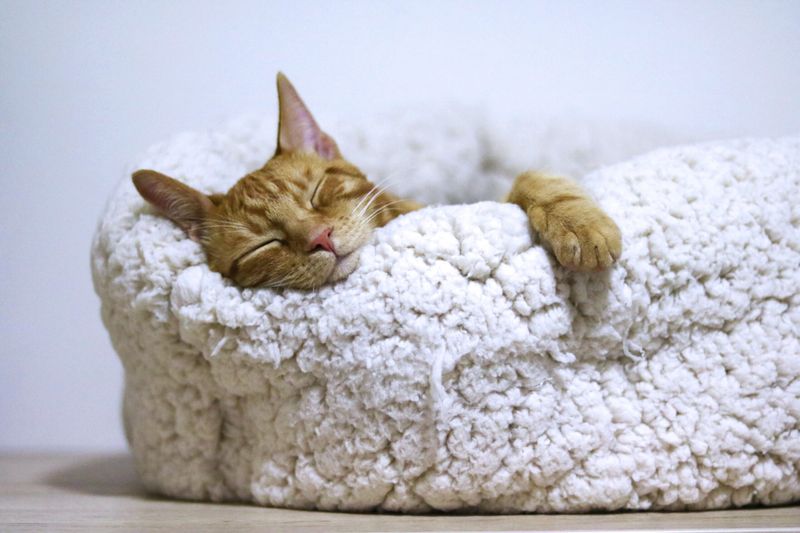
Time is a powerful healer for grieving cats. Over time, you may observe your cat gradually returning to its joyful self, playing in a sunlit room with renewed energy.
Patience and understanding throughout this process are crucial, allowing their natural resilience to guide recovery. Observing their healing journey can be a rewarding experience, reinforcing the bond you share.
Your support and companionship play an integral role in their return to happiness. Time, coupled with love, mends the heart.
Remembering Lost Companions
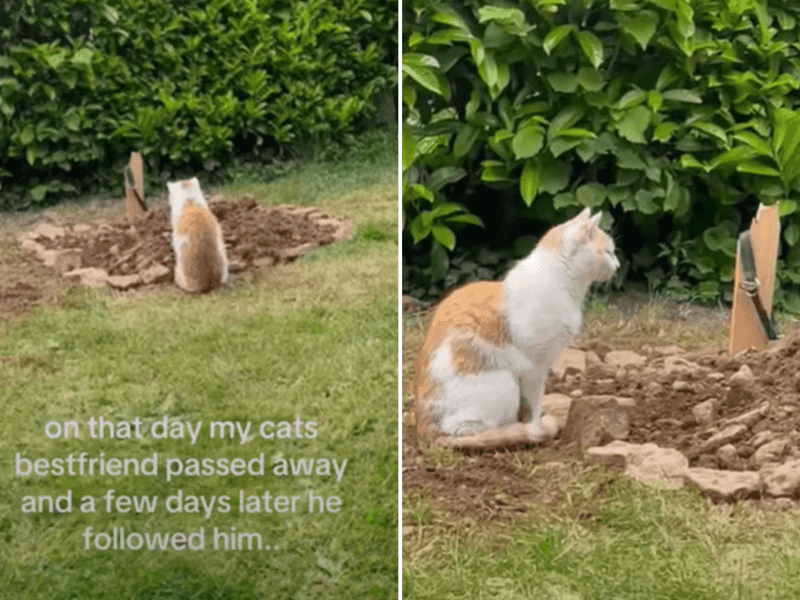
Cats remember lost companions, and acknowledging this can aid their healing. Observing a cat gazing at a photo of a lost friend reveals their capacity for memory and nostalgia.
Honoring these memories by creating small rituals or memorials can provide comfort and connection. Sharing these moments with your cat strengthens your bond and respects their feelings.
Acknowledging their loss validates their emotions, supporting their journey through grief. Your empathy and respect foster healing through shared remembrance.
Cats Teach Us About Grief
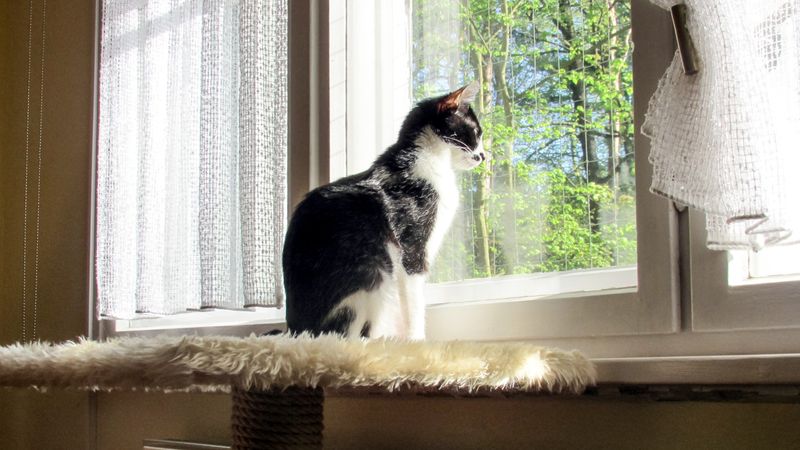
Cats, through their experience of grief, have much to teach us. Sharing a tender moment with your cat, both of you can grow and learn from this shared journey.
Observing their resilience and capacity for healing offers valuable insights into the nature of grief. Their journey through sorrow and recovery mirrors our own, deepening our understanding of emotional processes.
Through this experience, you strengthen your connection, learning patience, empathy, and the power of companionship. Together, you navigate the path of healing.

